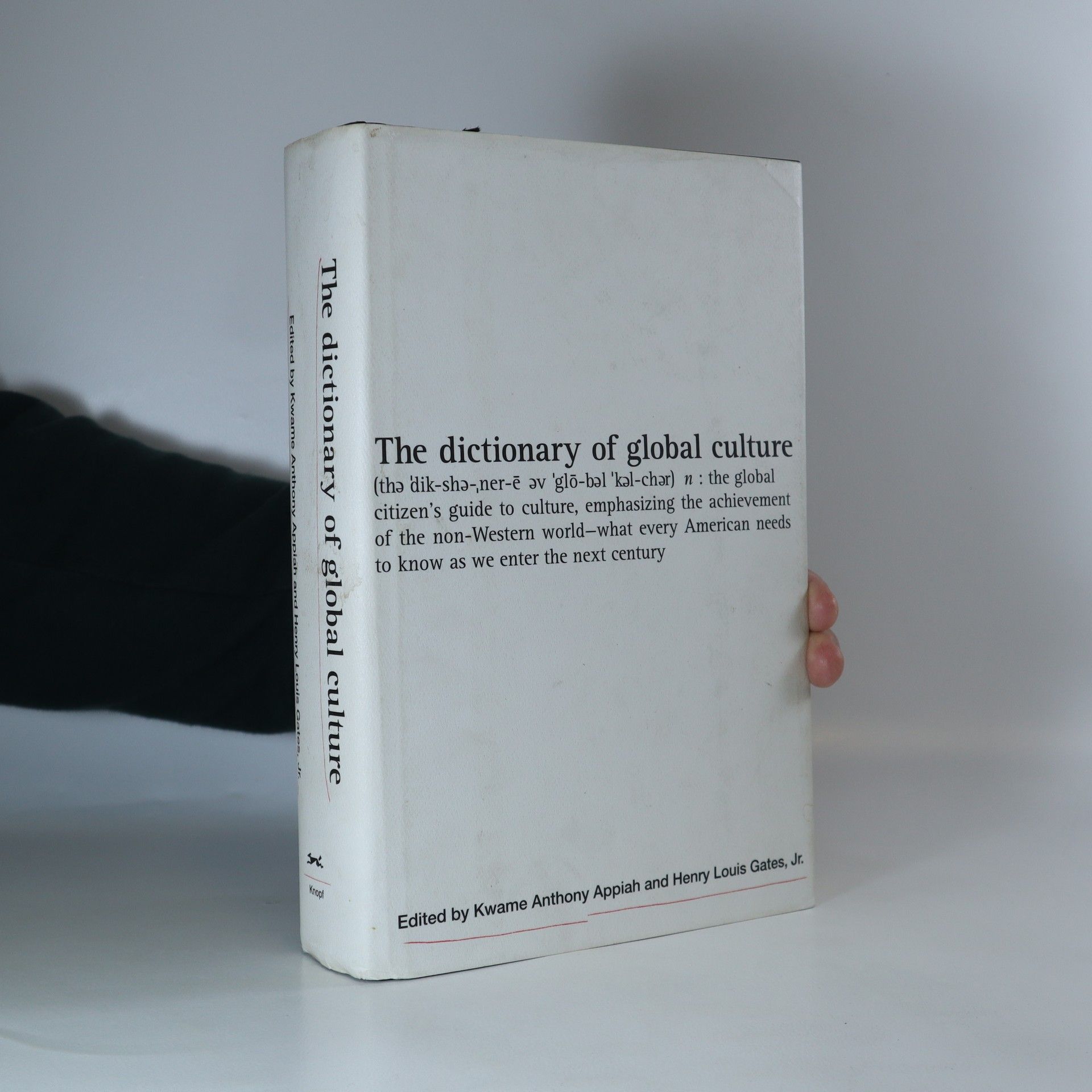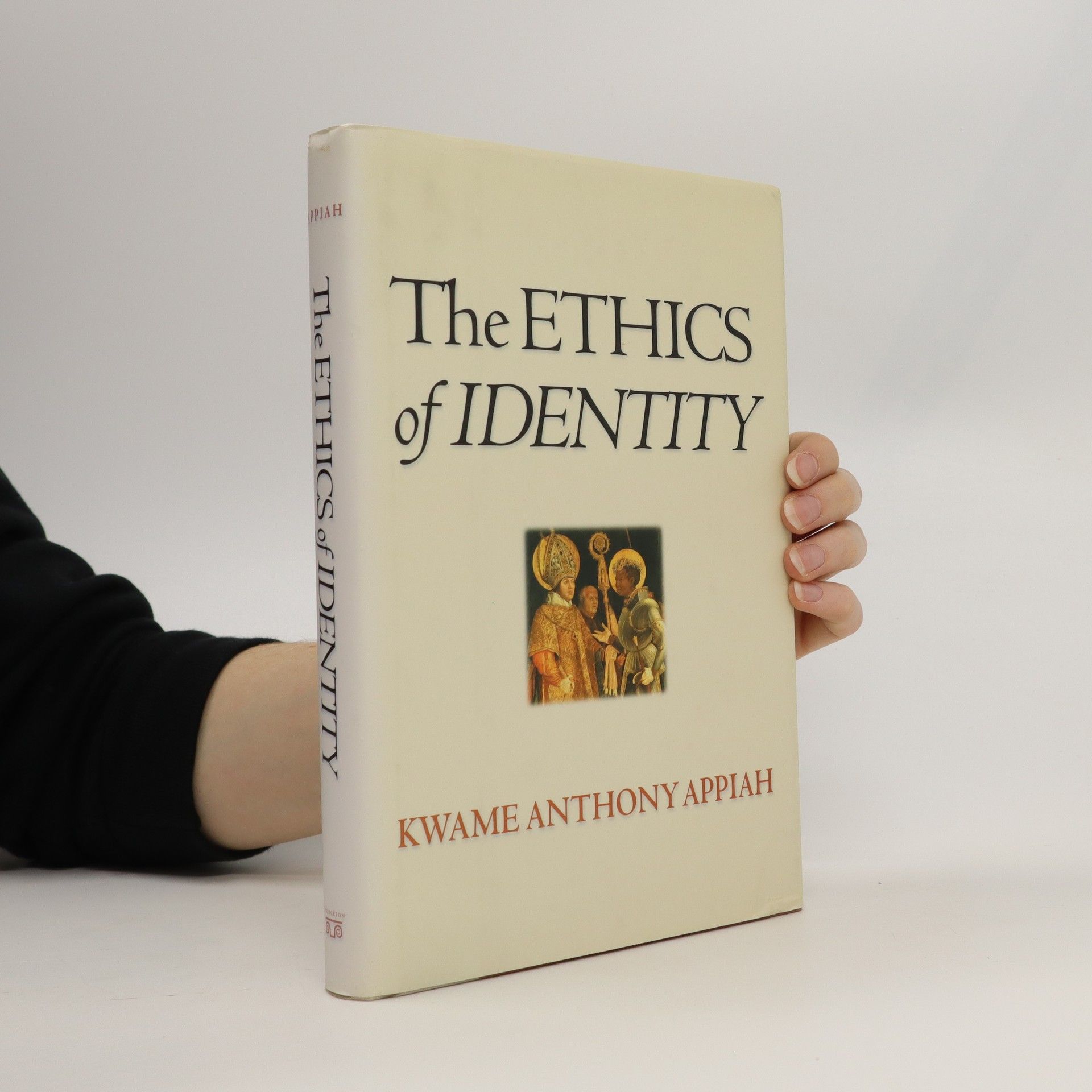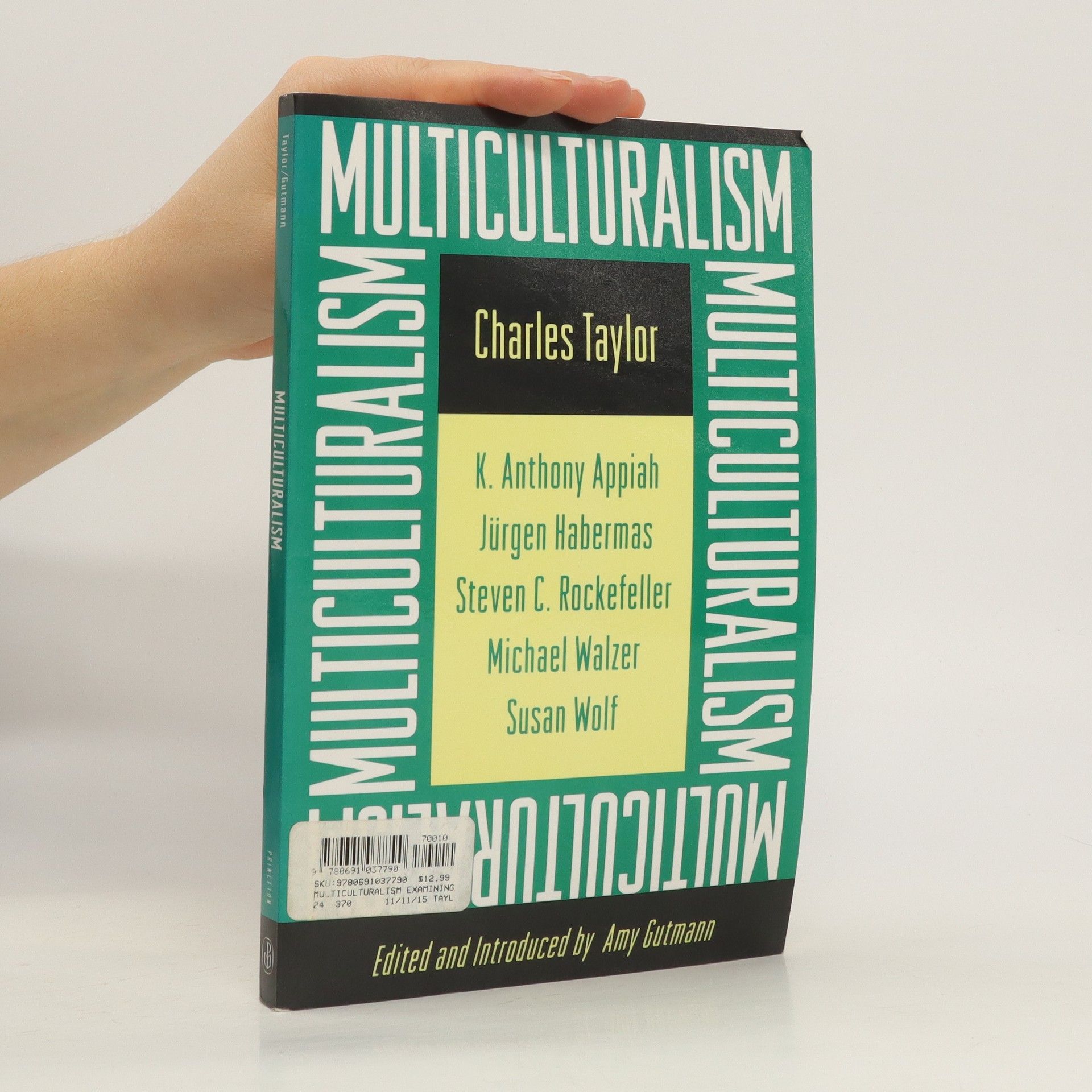A new edition of the highly acclaimed book Multiculturalism and "The Politics of Recognition," this paperback brings together an even wider range of leading philosophers and social scientists to probe the political controversy surrounding multiculturalism. Charles Taylor's initial inquiry, which considers whether the institutions of liberal democratic government make room--or should make room--for recognizing the worth of distinctive cultural traditions, remains the centerpiece of this discussion. It is now joined by Jürgen Habermas's extensive essay on the issues of recognition and the democratic constitutional state and by K. Anthony Appiah's commentary on the tensions between personal and collective identities, such as those shaped by religion, gender, ethnicity, race, and sexuality, and on the dangerous tendency of multicultural politics to gloss over such tensions. These contributions are joined by those of other well-known thinkers, who further relate the demand for recognition to issues of multicultural education, feminism, and cultural separatism. Praise for the previous edition:
Kwame Anthony Appiah Knihy
Kwame Anthony Appiah skúma zložité otázky identity a etiky vo svojom diele. Jeho písanie sa často zaoberá prepojením filozofie a nášho každodenného života, pričom ponúka bystré pohľady na morálne dilemy, ktorým čelíme. Appiahov štýl je známy svojou jasnosťou a prístupnosťou, vďaka čomu sú jeho komplexné nápady zrozumiteľné pre široké publikum. Jeho dielo nabáda čitateľov k zamysleniu sa nad tým, ako si formujeme svoju identitu a aké záväzky máme voči svetu.






Zákon cti
Jak dochází k morálním revolucím
A guide to the history and current state of Africa and African American heritage includes entries on topics ranging from affirmative action to zydeco.
This text explores the ethical significance of identity, including our gender, race, ethnicity, nationality, religion and sexuality, for our obligations to others and to ourselves.
The dictionary of global culture
- 717 stránok
- 26 hodin čítania
"The global citizen's guide to culture, emphasizing the achievement of the non-Western world -- what every American needs to know as we enter the next century."--Cover
The Lies That Bind
- 272 stránok
- 10 hodin čítania
We often think identity is personal. But the identities that shape the world, our struggles, and our hopes, are social ones, shared with countless others. Our sense of self is shaped by our family, but also by affiliations that spread out from there, like our nationality, culture, class, race and religion.Taking these broad categories as a starting point, Professor Appiah challenges our assumptions about how identity works. In eloquent and lively chapters, he weaves personal anecdote with historical, cultural and literary example to explore the entanglements within the stories we tell ourselves. We all know there are conflicts among identities; but Professor Appiah explores how identities are created by conflict. Identities are then crafted from confusions - confusions this book aims to help us sort through. Religion, Appiah shows us, isn't primarily about beliefs. The idea of national self-determination is incoherent. Our everyday racial thinking is an artefact of discarded science. Class is not a matter of upper and lower. And the very idea of Western culture is a misleading myth. We will see our situation more clearly if we start to question these mistaken identities. This is radical new thinking from a master in the subject and will change forever the way we think about ourselves and our communities.
Cosmopolitanism : ethics in a world of strangers
- 224 stránok
- 8 hodin čítania
“A brilliant and humane philosophy for our confused age.”―Samantha Power, author of A Problem from Hell Drawing on a broad range of disciplines, including history, literature, and philosophy―as well as the author's own experience of life on three continents― Cosmopolitanism is a moral manifesto for a planet we share with more than six billion strangers.
Der Kosmopolit
Philosophie des Weltbürgertums
Kwame Anthony Appiahs Philosophie des Kosmopoliten verkörpert die Idee, die Vielfalt der Kulturen als gemeinsamen Gewinn zu betrachten, selbst wenn wir unterschiedliche Werte und Wahrheiten leben. In einer zunehmend vernetzten Welt kritisiert Appiah sowohl das Konzept des „Kriegs der Kulturen“ als auch einen naiven Multikultirelativismus. Sein elegant geschriebenes Werk bringt das klassische Ideal des „Weltbürgers“ in die Gegenwart zurück – ein Ideal, das den kreativen Austausch über Grenzen hinweg betont. Appiahs kosmopolitische Ethik strebt eine Balance zwischen dem Glauben an universale Werte und dem Respekt vor der Andersartigkeit nichtwestlicher Erfahrungen an. Diese Balance wird durch „Konversation“ erreicht, ein Begriff, dem Appiah neue philosophische Bedeutung verleiht. Er beschreibt dies als das einzige Mittel, um nationale, religiöse oder kulturelle Differenzen zu erkunden und sich an sie zu gewöhnen. Für den Weltbürger ist nicht Konsens entscheidend, sondern der Glaube an die Gemeinsamkeit des Menschseins in einer Welt voller Fremder. In einer brillanten Kritik an der Überbetonung der Differenz in der abendländischen Philosophie zeigt Appiah anhand zahlreicher Beispiele, auch aus seiner afrikanischen Heimat, wie modernes Weltbürgertum gelebt werden kann.
Identitäten
- 336 stránok
- 12 hodin čítania
„Appiah zerlegt die Dogmen und die Propaganda, die harnäckig bestimmen, wie wir über Identität sprechen.“ Zadie Smith In den politischen Auseinandersetzungen der Gegenwart wird immer wieder eine Kategorie aufgerufen: Identität. Wer sind wir? Oder besser: Was sind wir? Diese Fragen beantworten wir gewohnheitsmäßig mit kollektiven Kategorien wie Religion, Nationalität, Hautfarbe, Klasse oder Kultur. Kwame Anthony Appiah zeigt, dass hinter den politischen Kategorien von Zugehörigkeit und Abgrenzung häufig paradoxe Zuschreibungen stehen, und schöpft dabei aus einem schier unendlichen Reservoir historischen Wissens sowie persönlicher Erfahrungen – und schafft mit dem Handwerkszeug des Philosophen Ordnung und Orientierung in einer häufig unübersichtlichen und politisch brisanten Diskussion. Sein Buch ist grundlegende Lektüre für eine komplexe Welt.


